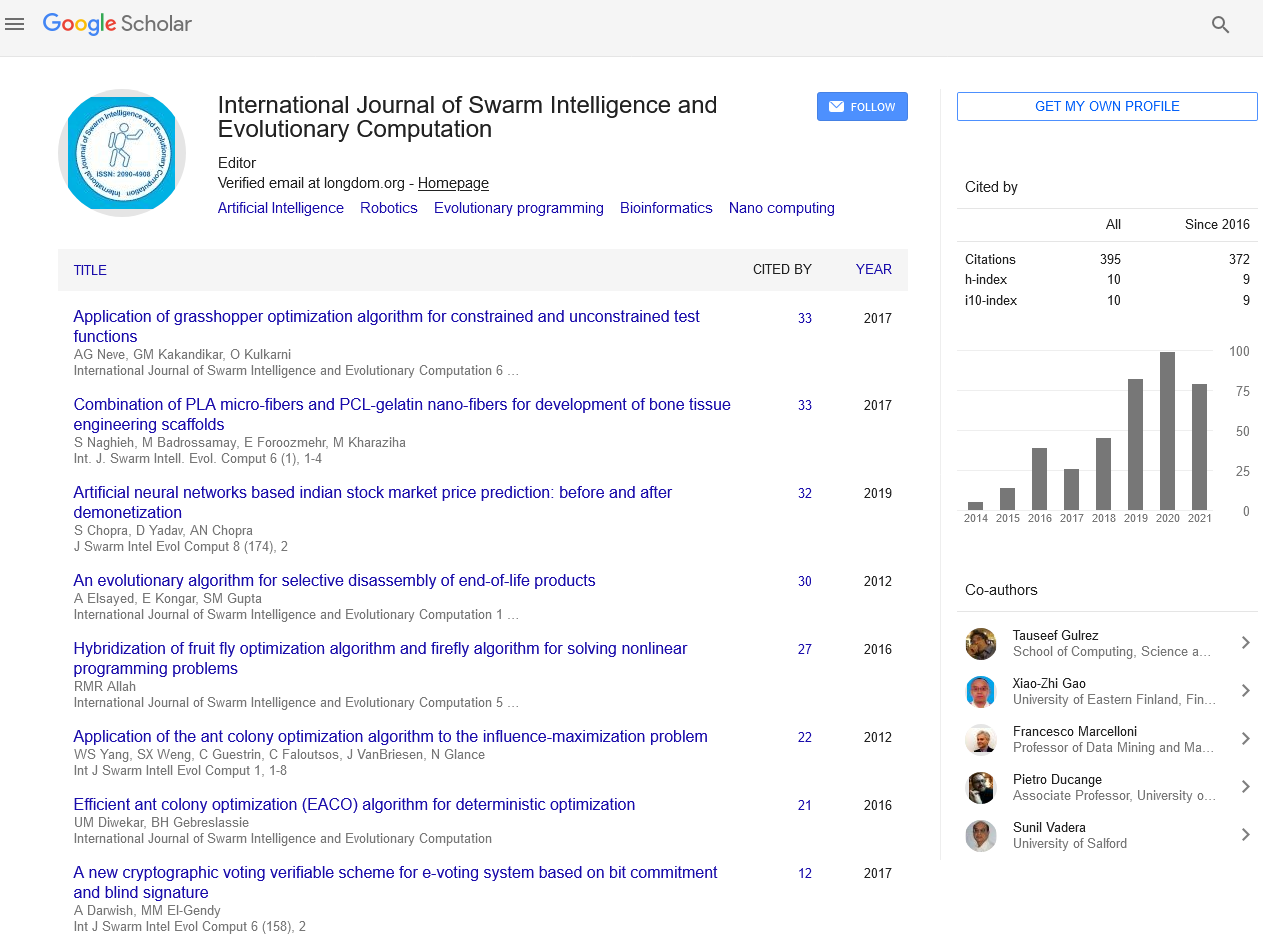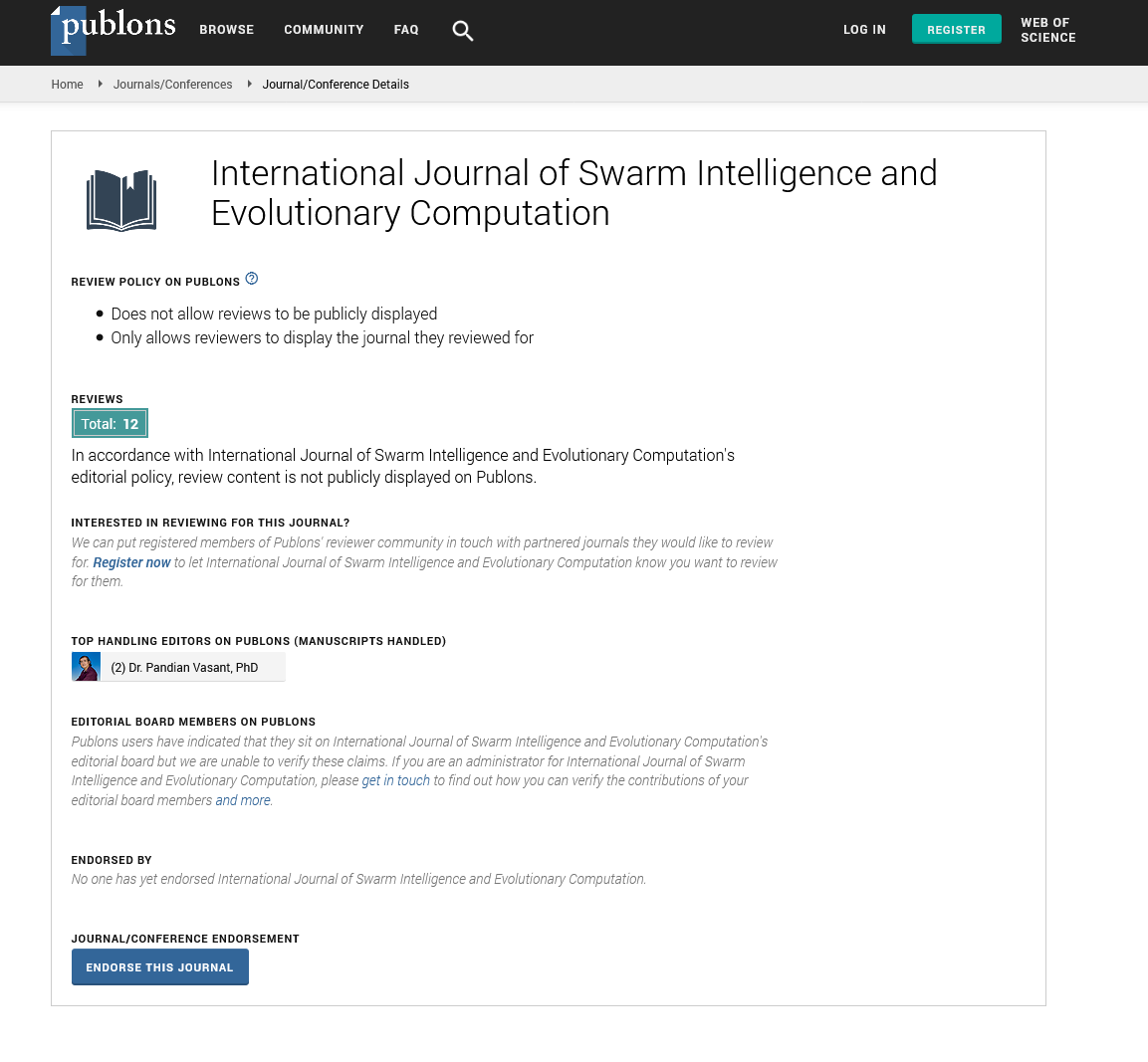Indexed In
- Genamics JournalSeek
- RefSeek
- Hamdard University
- EBSCO A-Z
- OCLC- WorldCat
- Publons
- Euro Pub
- Google Scholar
Useful Links
Share This Page
Journal Flyer

Open Access Journals
- Agri and Aquaculture
- Biochemistry
- Bioinformatics & Systems Biology
- Business & Management
- Chemistry
- Clinical Sciences
- Engineering
- Food & Nutrition
- General Science
- Genetics & Molecular Biology
- Immunology & Microbiology
- Medical Sciences
- Neuroscience & Psychology
- Nursing & Health Care
- Pharmaceutical Sciences
Opinion Article - (2023) Volume 12, Issue 4
Knowledge Representation in the Digital Age: Ontology Engineering and its Applications
Zheifi Hassan*Received: 05-Jul-2023, Manuscript No. SIEC-23-22654; Editor assigned: 07-Jul-2023, Pre QC No. SIEC-23-22654 (PQ); Reviewed: 21-Jul-2023, QC No. SIEC-23-22654; Revised: 28-Jul-2023, Manuscript No. SIEC-23-22654 (R); Published: 07-Aug-2023, DOI: 10.35248/2090-4908.23.12.328
Description
Ontology engineering is a critical discipline within the realm of computer and information sciences, particularly in the context of semantic web technologies, knowledge management, and artificial intelligence. It involves the design and creation of ontologies structured, formal representations of knowledge within a specific domain. Ontologies facilitate interoperability, information retrieval, and reasoning by providing a shared understanding of concepts, their properties, and the relationships between them.
The process of ontology engineering comprises several steps, starting with the specification of requirements. The requirements gathering phase involves defining the ontology's purpose, scope, and intended users. Engaging with domain experts and potential users is crucial in understanding the knowledge and relationships that need to be represented in the ontology. Once the requirements are clear, the next step is to create a conceptual model that lays out the high-level structure of the ontology. This model includes key concepts, their attributes, and the relationships between them.
The conceptual model then serves as the basis for ontology formalization, wherein the concepts and relationships are represented using formal languages like the Web Ontology Language (OWL) or Resource Description Framework Schema (RDFS). Formalization ensures that the ontology can be processed by computers and utilized in applications such as data integration, information retrieval, and decision support systems. Tools like Protégé, a popular ontology editor, can help in the creation and editing of formal ontologies.
Ontology engineering also encompasses ontology evaluation and maintenance. Evaluation is essential to ensure the ontology meets its intended purpose and requirements. Techniques like competency questions, expert reviews, and automated tools can assess the ontology's quality, completeness, and coherence. Maintenance is an on-going process that involves updating the ontology to accommodate new knowledge, correcting errors, and refining its structure. This continuous evolution ensures the ontology remains relevant and accurate over time.
Ontology engineering benefits from collaboration and reuse of existing ontologies. Ontology repositories, such as bio portal and the Linked Open Vocabularies (LOV) initiative, offer a wealth of ontologies covering various domains. By reusing and extending existing ontologies, engineers can save time and effort while promoting interoperability and standardization.
Despite its potential, ontology engineering faces challenges. The complexity of representing real-world knowledge, the need for domain expertise, and the effort required for ontology development and maintenance can be daunting. However, ongoing research and advancements in tools and methodologies are making ontology engineering more accessible and efficient.
Ontology engineering is instrumental in various applications, including knowledge management, data integration, and natural language processing. For example, the Gene Ontology has been invaluable in organizing biological knowledge and aiding researchers in understanding gene functions. In the healthcare domain, ontologies enable the integration of patient data from disparate sources, facilitating more informed clinical decisionmaking. Furthermore, ontologies power intelligent agents and chatbots, enhancing their ability to understand and respond to user queries.
Conclusion
Ontology engineering plays a pivotal role in representing and organizing knowledge in a structured, formal, and computerreadable format. By providing a shared understanding of concepts and their relationships within a specific domain, ontologies enable more effective information retrieval, data integration, and reasoning. As ontology engineering continues to evolve, it will undoubtedly contribute to advancements in knowledge management, semantic web technologies, and artificial intelligence. The on-going development of tools and methodologies, coupled with collaboration and reuse of existing ontologies, will further enhance the field's potential and impact.
Citation: Hassan Z (2023) Knowledge Representation in the Digital Age: Ontology Engineering and its Applications. Int J Swarm Evol Comput. 12:328.
Copyright: © 2023 Hassan Z. This is an open-access article distributed under the terms of the Creative Commons Attribution License, which permits unrestricted use, distribution, and reproduction in any medium, provided the original author and source are credited.


